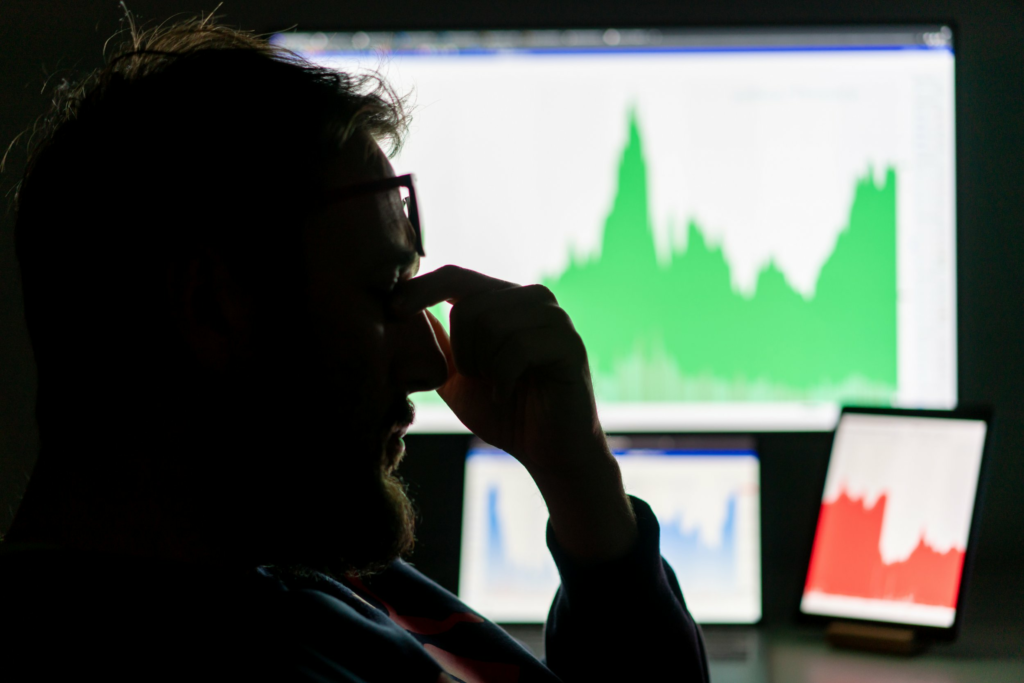I now realise I became hooked on cryptocurrency trading during the first coronavirus lockdown. However, I was living in denial and believed that I didn’t have a problem because I never went bankrupt. In fact, I went to mental health and addiction clinic Paracelsus Recovery for a sleep medication dependency. After a few weeks of being treated there, we realised the root cause of my dependency was a cryptocurrency addiction.
To provide some background: I sold my company in early 2020. I had spent my whole adult life working relentless hours and making sacrifices along the way to build a highly successful multi-million-pound business. Then suddenly I was sitting on a windfall of cash, retired in my early 50s and stuck at home in lockdown.
I had been meaning to make a smart cryptocurrency investment for a while, and I spent the first half of lockdown becoming an expert in Ethereum and other cryptocurrencies. I listened to podcasts, consumed hours of crypto content on YouTube, spoke with advisors, joined forums and tried to do everything right.
Once I felt ready, I invested £1m in Ethereum and other cryptocurrency stock. I know that sounds irrational. But I didn’t have the right support or advice I should have had after selling my company. Money had become an abstract concept.
I made close to £5 million on that one investment. I felt on top of the world. I immediately made plans to reinvest that money. I promised myself I would only reinvest money I made from the trading. But then, as the losses started creeping in, so too did the addiction, and that resolution was soon out of the window.
Because the markets are unpredictable, you can win everything back in a matter of minutes. This is what made crypto trading addictive for me. I ended up in a state where I couldn’t sleep if my account was in negative figures. As the markets are open 24/7, this meant I could keep investing all night long. I would spend up to 48 hours trading and then take sleeping pills to force my body to rest. I also started becoming more dependent on alcohol because the Dutch courage helped me make riskier decisions.
We all became isolated in the lockdowns, and I am separated so spent most of the first two lockdowns alone. This made it easy to trade in secret. It was only when my adult children came to stay with me over Christmas that I realised how erratic I had become. I was hostile and antagonistic towards them, and they were worried that I was staying awake for long periods and then sleeping for days at a time. Yet, all the while, I did not think my trading was part of the problem.
I went to an addiction and mental health clinic because I knew that I couldn’t afford the instability that came with a sleeping medication issue. But, when I struggled to stick to the treatment programme because of how it interfered with my trading, the team realised that I had a cryptocurrency addiction which they said they could treat. Everything else was a coping mechanism in response to this core problem.
Once it all clicked into place, it was like the scales fell from my eyes. I had lost millions of pounds. I am embarrassed to say exactly how much, but it was far more than the original investment. My health had been left in disarray, and as well as a problem with sleep medication and alcohol, I had started to suffer from anxiety attacks.
I was on a downward slope when I found a recovery programme and managed to turn my life around. I have completely stopped trading in cryptocurrency and have watched the crypto crash of recent months with a sense of relief that I am no longer involved.
Looking back, I feel a sense of anger that there were no warnings that crypto trading can be addictive and that because markets are so volatile, it can be more like gambling than traditional trading.
I wish now that I had just lost everything on that first trade and stopped before I became an addict.
All rights reserved. © 2021 Associated Newspapers Limited.
Author
Administraroot


